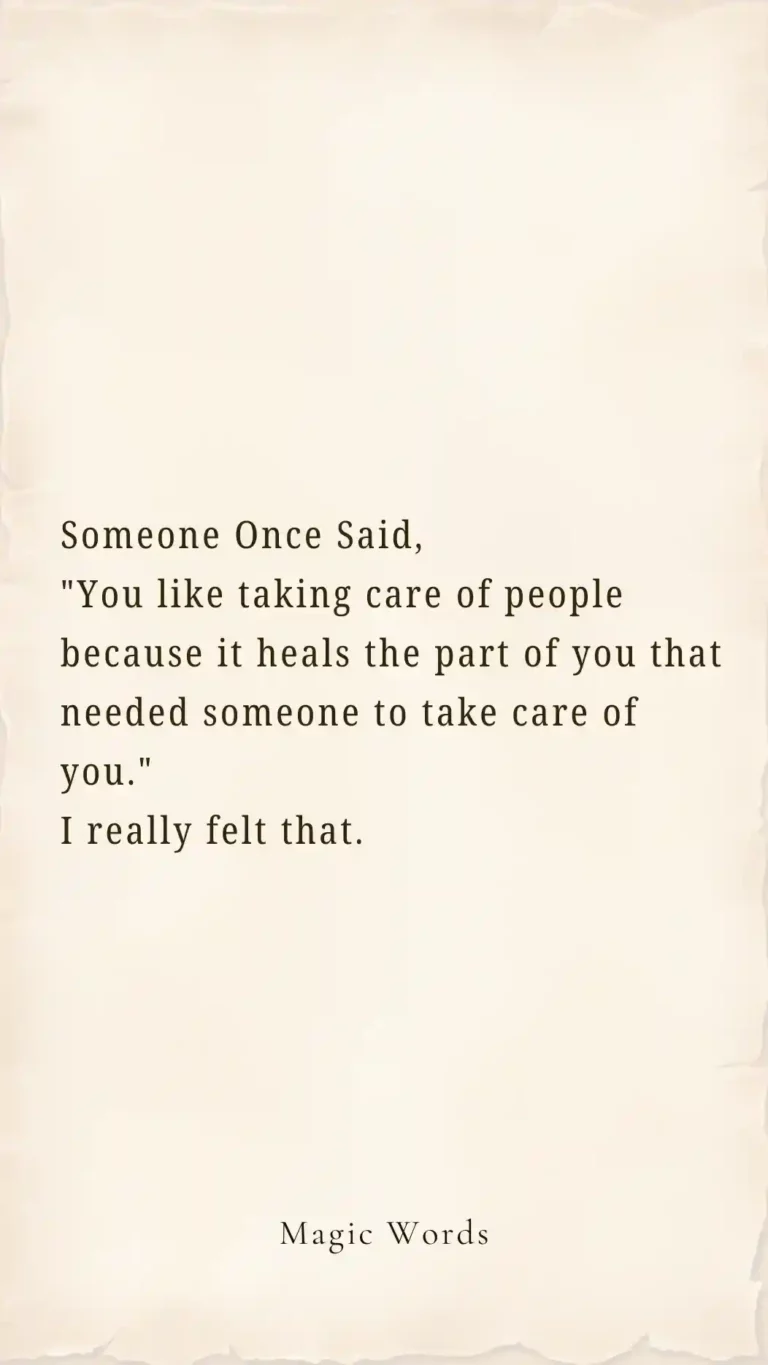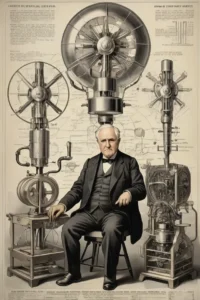Headline: Someone Once Said, “You Like Taking Care of People Because It Heals the Part of You That Needed Someone to Take Care of You”
There’s a profound truth hidden in the words, “You like taking care of people because it heals the part of you that needed someone to take care of you.” For many, this statement resonates deeply, offering a mirror into their own emotional experiences. It speaks to the quiet, often unspoken motivations that drive us to nurture others, stemming from a place of personal healing and growth.
The Healing Power of Caring for Others
Caring for others can feel like second nature to some people, almost as if it’s woven into the fabric of who they are. But why? For those who have experienced neglect, loneliness, or emotional wounds in the past, taking care of others can be a way to fill a void that was once left empty. It’s a form of self-healing—an act of kindness that not only benefits the person being cared for but also mends the caregiver’s soul.
When we nurture someone else, we often project our own needs onto them. We provide the care and attention we once craved, unknowingly giving ourselves what we lacked. This process can bring immense satisfaction and emotional closure, creating a sense of purpose and fulfillment.
The Double-Edged Sword of Caregiving
While taking care of others can be healing, it’s important to recognize that it can also become overwhelming if not balanced properly. Constantly giving without setting boundaries can lead to emotional exhaustion or even resentment. It’s vital to ensure that your caregiving comes from a place of genuine love and not solely from an unaddressed need for validation or approval.
Self-awareness is key. Ask yourself: Am I caring for others because I truly want to, or am I trying to fill an emotional void? Understanding your motivations allows you to care for others in a healthy and sustainable way.
Embracing Self-Care Alongside Caregiving
One of the greatest lessons for those who resonate with this quote is learning to care for themselves as much as they care for others. Self-care is not selfish—it’s necessary. By nurturing your own emotional and physical well-being, you become better equipped to support others without feeling drained or unfulfilled.
Whether it’s through therapy, journaling, meditation, or simply setting aside time for activities you love, taking care of yourself should always be a priority. After all, you can’t pour from an empty cup.
FAQs
Q: Why do I feel fulfilled when taking care of others?
A: Taking care of others can provide a sense of purpose and healing. It often stems from addressing unmet emotional needs from your past by offering others the care you once needed.
Q: How do I set boundaries as a caregiver?
A: Communicate openly about your limits and prioritize self-care. It’s okay to say no when you feel overwhelmed or stretched too thin.
Q: Can caregiving ever become unhealthy?
A: Yes, if it becomes a way to avoid addressing your own emotional needs or if it leads to burnout. Balance is crucial to maintaining healthy caregiving habits.
In conclusion, the quote “You like taking care of people because it heals the part of you that needed someone to take care of you” is a gentle reminder of the interconnectedness between giving and receiving care. By understanding this connection and prioritizing self-care, we can create a healthier balance in our relationships and continue to grow emotionally.





